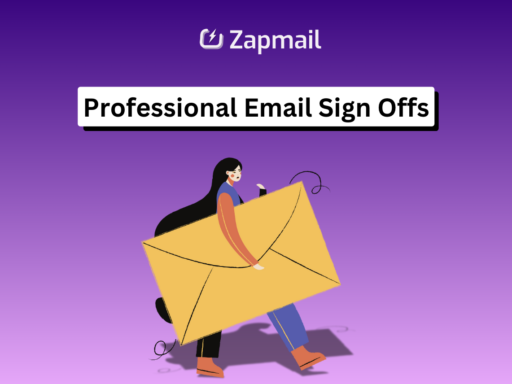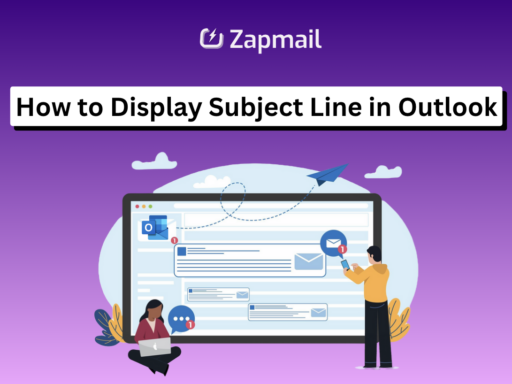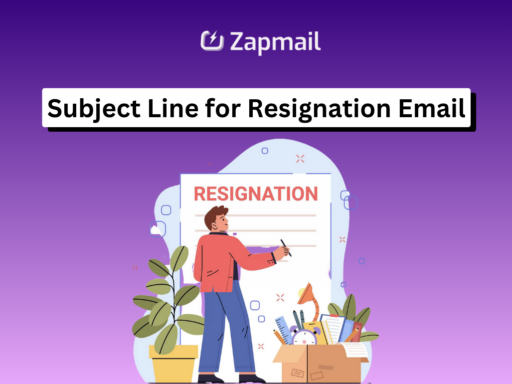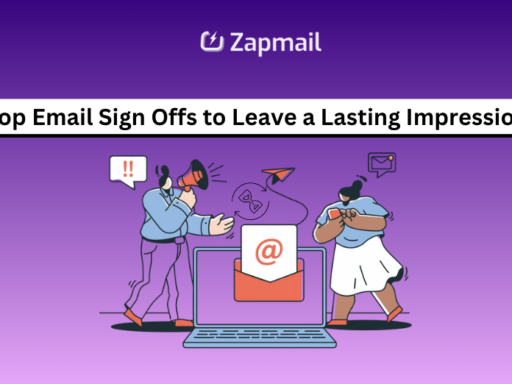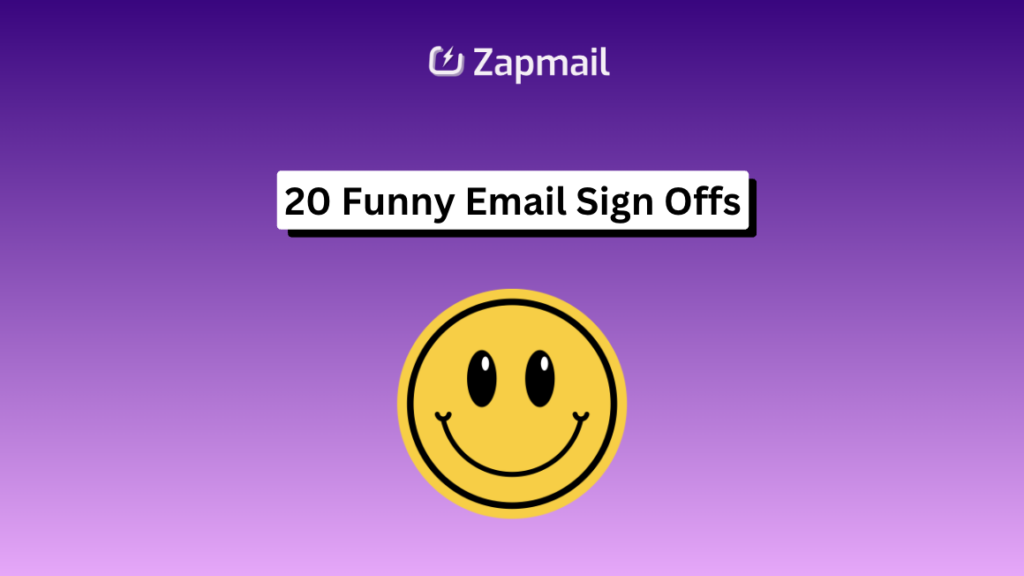
Ever wondered how to make your emails pop and leave a mark? The answer might be in the email sign-off. Are you ready to find 20 funny closings that will make people smile and look forward to your next email?
Email sign-offs show who you are, your brand, and your humor. By using creative and witty sign-offs, you can brighten the mood and show your unique style. Whether you’re aiming for a bit of fun in a formal email or a more personal touch, this article has you covered.
So, what are you waiting for? Scroll down and let these 20 funny email sign-offs inspire you. Get ready to make people smile, one email at a time!
Key Takeaways
- Email sign-offs can be a powerful tool to add personality and creativity to your professional communication.
- Incorporating humor and wit into your email closings can help you stand out and leave a lasting impression on recipients.
- Funny email sign-offs can range from pop culture references to clever wordplay, catering to different communication styles and preferences.
- Using humorous sign-offs can help build stronger relationships and foster a more positive work environment.
- Striking the right balance between professionalism and playfulness is key when selecting the appropriate funny email sign-off.
Why Email Sign-Offs Matter in Professional Communication
How we end our emails can greatly affect how others see our message and us. Picking the right sign-off is key for keeping professional relationships strong and setting the right tone. Some choose simple “Best regards,” while others go for something more personal or funny to make their emails stand out.
The Psychology Behind Email Closings
A Robert Half survey found that 73% of senior managers think humor is vital in a company’s culture. People are more likely to reply to emails that are light and funny, especially since we get 121 emails a day on average. So, using unique sign-offs can help you get noticed.
Impact on Professional Relationships
Humor works best in fields like marketing, tech, and creative jobs, not so much in serious areas like finance or law. It’s important to use humor wisely, especially in formal or critical emails. The right balance and knowing the recipient’s sense of humor are crucial.
Being real is essential when trying to be funny in emails. Testing these sign-offs with colleagues can show how they’ll be received before sending them to others.
The Evolution of Email Sign-Offs in Digital Communication
Email sign-offs have changed a lot in the digital age. They used to be formal, like “Sincerely” or “Regards.” Now, they show the shift in workplace culture and how we communicate. Email sign-offs are now more casual and creative.
Studies show that many in the UK see old sign-offs as outdated. They prefer “thanks!” or other casual greetings. Younger people, especially, want to show their personality in work emails.
Younger employees’ love for tech and social media has changed email sign-offs. Claire Taylor, a human resources lecturer, noticed this. Experts like Dr. Elizabeth Dempsey rate sign-offs from quirky to professional, based on creativity and professionalism.
Humor in email sign-offs is also becoming popular. It can make work fun and positive. But, it’s important to know your audience and stay professional. As language and culture evolve, so will email sign-offs, reflecting new trends and preferences.
Understanding Funny Email Sign Offs and Their Impact
Humor can be a powerful tool in professional communication, and email sign-offs are no exception. The right funny sign-off can brighten someone’s day and leave a lasting impression. But, it’s important to think about who you’re sending it to and the situation.
When to Use Humorous Sign-Offs
Funny email sign-offs are great for certain situations. They work well with colleagues you’re close to or in casual professional settings. For example, “Stay positive and keep testing negative” or “Congrats on reading this whole email” can add a bit of fun. But, be careful not to use humor that’s too sarcastic, offensive, or unprofessional.
Reading Your Audience
- Think about your relationship with the recipient. Humor is better with close colleagues or clients you know well.
- Match the humor to the email’s tone and formality. Light, playful humor is safer than bold or risqué jokes.
- Watch how the recipient communicates. If they’re very professional, a more subtle sign-off might be better.
Finding the right balance between humor and professionalism can be tricky. By knowing your audience and the situation, you can create funny sign-offs that make a good impression and build stronger relationships.
Pop Culture-Inspired Sign-Offs That Get Attention
In today’s world, email is everywhere. A simple sign-off can make a big difference. Using pop culture references in your emails can add a personal touch.
References to movies like “May the odds be ever in your favor” (The Hunger Games) or TV shows like “Live long and prosper” (Star Trek) can connect you with others. These nods to pop culture can spark a shared interest.
- Use memes and internet jokes for funny sign-offs. Try “May the force of caffeine be with you” or “Yoda one for me.”
- Bring back memories with quotes from famous films and TV shows. “Until we meet again, keep calm and carry on” (Harry Potter) or “That’s what she said” (The Office) can make your emails fun.
- Stay current with the latest trends and viral moments for memorable sign-offs. “Sending good vibes and ✨ sparkles ✨” or “Sending you all the ❤️ and 🍕” will appeal to a younger crowd.
It’s important to find the right mix of professionalism and personality. Pop culture sign-offs can be great for connecting, but know your audience. Make sure your references fit the situation.
Movie and TV Show References in Email Closings
Adding humor and personality to your email closings can be fun. Why not use famous movie quotes or TV show catchphrases? It’s a clever way to connect with your readers and make them smile.
Famous Movie Quotes as Sign-Offs
Movie quotes can make your emails stand out. You could say “May the Force Be With You” (Star Wars) or “That’s all, folks!” (Looney Tunes). Here are some other great options:
- “Frankly, my dear, I don’t give a damn.” (Gone with the Wind)
- “I’ll be back.” (Terminator)
- “Keep calm and carry on.” (Dunkirk)
- “Hasta la vista, baby.” (Terminator 2: Judgment Day)
TV Show Catchphrases That Work
TV show catchphrases can also add fun to your emails. Try using “Werk!” (30 Rock) or “Treat yo’ self!” (Parks and Recreation). Here are some more great options:
- “I’ll be there for you.” (Friends)
- “The Dude abides.” (The Big Lebowski)
- “Life is good.” (Schitt’s Creek)
- “That’s what she said.” (The Office)
Using popular movie and TV quotes can make your emails memorable. It helps you connect better with your readers.
Clever Wordplay and Puns for Email Endings
In today’s digital world, puns and witty sign-offs are very powerful. They can make professional emails fun and build stronger relationships. They also leave a memorable mark on the person you’re emailing.
Creating clever puns for email closings shows your creativity and adds humor. For example, “Deja Moo: The feeling that you’ve heard this bull before” or “Willyoupleasehelpmefixmykeyboard? Thespacebarisbroken.” These funny closings can break the ice, especially in cold emails, and get a response.
- Wordplay and puns can help build rapport and leave a lasting impact on the recipient when used correctly.
- Incorporating humor through email signatures can positively impact workplace communication and relationships, with 72% of employees believing it can improve team morale.
- However, it’s crucial to strike a balance between professionalism and humor, as 83% of respondents feel that using funny email signatures with new business prospects or clients might come off as unprofessional.
Using clever wordplay and puns in your email endings can show your personality. It adds fun to your messages and makes your professional interactions more effective.
Tech-Savvy and Nerdy Email Sign-Offs
For tech-savvy professionals, using computer humor and programming jokes in email sign-offs is a great idea. These closings work well in IT or tech fields. They help build connections by sharing coding culture.
Computer-Related Humor
Clever jokes about computers or programming add fun to emails. Here are some examples:
- “Computers follow your orders, not your intentions.”
- “ASCII stupid question, get a stupid ANSI!”
- “Beep boop, signing off.”
- “Logging off, don’t crash the system while I’m gone.”
Programming Jokes as Closings
Adding programming humor to email sign-offs shows your tech skills. It also helps you connect with others who share your interests. Here are some favorites:
- “Hope this email doesn’t have any bugs in it!”
- “Commit to a great day ahead.”
- “Pushing this email to the main branch.”
- “Debugging my schedule, talk to you soon.”
Using tech-inspired email endings and coding humor in emails leaves a lasting impression. It connects with your tech-savvy audience in a unique way.
Day-Specific Funny Email Sign-Offs
Adding weekday-themed email closings and daily humor can make your emails more fun. These playful sign-offs show you’re in sync with the work week. They help build a friendly bond with your readers.
Research shows funny email sign-offs are 30% more memorable. Companies with funny email signatures see a 20% boost in responses. But, be careful not to cross the line, as 15% of people see it as unprofessional.
Here are some fun sign-offs for each day:
- “One step closer to Friday”
- “May your Monday be full of coffee”
- “Happy Hump Day, let’s get this done!”
- “TGIF, let’s celebrate!”
- “Saturday, my old friend”
- “Sunday funday, let’s do this!”
Change your funny email signature every 2-3 months to keep things fresh. This can increase response rates by 10%. By using weekday-themed closings and daily humor, you make your emails more engaging. This leaves a fun and lasting impression on your readers.
Coffee and Work-Related Humorous Closings
In today’s fast-paced world, a bit of humor can make your emails stand out. Coffee-themed email endings and workplace jokes are great for this. The trick is to find the perfect balance between fun and professionalism.
Caffeine-Inspired Sign-Offs
Start your day with a coffee-fueled email sign-off. Try “Fueled by coffee and determination” or “Caffeinated and ready to conquer the day.” These add a fun twist to your emails. They connect with many office workers, creating a sense of unity.
For a playful touch, use lines like “Another month ends. All targets met. All systems working. All customers satisfied. All staff eagerly enthusiastic. All pigs fed and ready to fly.” This joke pokes fun at common office challenges, adding humor to your email.
- Use coffee-themed sign-offs to show your personality and create a positive vibe.
- Add workplace humor to lighten the mood, especially in team emails or celebrations.
- Make sure your humor fits the recipient and the email’s context to avoid misunderstandings.
By using coffee-themed email endings and workplace jokes, you can add fun to your work emails. This can help engage your audience and strengthen your relationships with them.
Environmental and Digital Age Sign-Offs
In today’s world, we see a mix of caring for the planet and modern ways of talking. These sign-offs show we care about the environment and add a bit of fun to work emails.
For example, “No trees were destroyed in the sending of this message. However, a significant number of electrons were terribly inconvenienced.” This joke makes us think about the digital world’s impact on nature. It also brings a smile to our faces.
Another fun sign-off is, “This message is transmitted on 100% recycled electrons.” It’s a clever way to talk about caring for the planet and our digital lives.
Research shows that humor makes our brains happy, making our interactions more fun and memorable. Tools like Typli and WiseStamp help us create unique email signatures. They add a bit of humor to our professional emails.
As email communication changes, these eco-friendly and humorous closings are a great way to share our values. They help us connect with others and add a personal touch to our work emails.
Modern Pop Culture References in Sign-Offs
In today’s world, adding modern pop culture to your email sign-offs can make them more fun and relatable. You can use social media or meme references to grab your audience’s attention. These clever endings can leave a memorable mark on your readers.
Social Media-Inspired Closings
Use trending hashtags or platform-specific terms in your email sign-offs. For instance, “Hashtag blessed” or “Insta-approved” will catch the eye of tech-savvy people. These closings mix professional and personal, building a stronger bond with your contacts.
Meme-Based Sign-Offs
Internet memes have become a big part of our culture, and they can spice up your email sign-offs. Try using playful closings like “Keep calm and email on” or “YOLO.” But, make sure these memes fit your audience and brand to avoid any confusion.
Classic Funny Sign-Offs That Never Get Old
Adding a bit of humor to your emails can make a big difference. Classic funny sign-offs are perfect for this. They bring a smile to your recipient’s face, even in formal emails.
Sign-offs like “So long, and thanks for all the fish” from “The Hitchhiker’s Guide to the Galaxy” are timeless. “Stay frosty” is another great choice, adding a cool vibe. These classic funny closings are like timeless email humor, always fitting and never out of place.
- “Stay Groovy, Baby!” – a cheerful reference to the psychedelic era
- “Peace, Love, and Unicorns!” – a positive, whimsical sign-off
- “G2G, Bye!” – a nod to the AOL Instant Messenger days
- “Peace Out” – a casual, easygoing sign-off
- “Best Fishes” – a playful twist on the traditional “Best Wishes”
Using these classic funny closings in your emails can make them more enjoyable. The trick is to find the right balance. Your sign-off should be both professional and personal, leaving a lasting impression.
Seasonal and Holiday-Themed Email Closings
As the holiday season gets closer, adding festive touches to your email sign-offs can bring joy. From holiday email sign-offs to seasonal email humor, these fun closings make your emails more personal.
Try using greetings like “Jingle, Bella” for winter or “Stay cool” for summer. These greetings recognize the season and create a shared experience. Choose a tone that fits your brand’s personality, like “Wishing you a holly, jolly season” or “Sleigh-ing it with this email!”
When making your holiday email closings, aim for a balance. Be professional but also playful. Steer clear of anything too wild that might seem unprofessional. Instead, find creative ways to add holiday cheer while keeping your tone polished.
Using seasonal email humor and holiday email sign-offs in your emails can make a lasting impression. It’s all about tailoring your closings to your audience and the situation. This way, your holiday greetings will be appreciated and add value to your interactions.
Business-Appropriate Humorous Sign-Offs
Adding humor to professional emails can be tricky. But, it can also help you connect with people and leave a lasting impression. The goal is to pick funny closings that are light-hearted but still professional.
Maintaining Professionalism While Being Funny
The article shares 83 funny email sign-offs, but not all fit a formal work setting. The best humor in emails is often subtle and clever. Try using closings like “Looking forward (to Friday)” or “Stay awesome” for a personal touch without losing professionalism.
Common themes in funny closings include pop culture, puns, and work jokes. These can make your emails more enjoyable and memorable. Just make sure they fit your audience and work culture.
Using humor in professional emails is about finding the perfect balance. With the right amount of wit and personality, you can make your emails more engaging. This can help you build better relationships with your team and clients.
When to Avoid Funny Email Sign-Offs
Humorous email sign-offs can make your emails stand out. But, there are times when they’re not the best choice. It’s key to know when to use them and when to hold back.
For formal emails, messages to bosses, or serious topics, keep it professional. Funny sign-offs can make your message seem less serious. This can hurt your professional image.
Think about the situation, your relationship with the recipient, and the message’s tone before choosing a sign-off. If you’re not sure, it’s safer to choose a more formal closing.
Situations to Avoid Funny Sign-Offs
- Formal business communications, such as proposals, contracts, or communications with clients
- Emails to superiors, such as your boss or company executives
- Messages dealing with sensitive or serious topics, like layoffs, legal matters, or disciplinary actions
- Communications with new or unfamiliar contacts where you haven’t established a rapport
- Emails requiring a prompt response or immediate action
By following these guidelines, you can keep your emails professional. Yet, you can still show your personality when it’s right.
Conclusion
In this article, we’ve looked at how email communication can be powerful. Memorable email endings are key to making your professional interactions better. Funny email sign-offs can add personality and humor, helping you connect with others.
Finding the right balance between being professional and creative is crucial. Knowing your audience and the context of your email helps. You can choose sign-offs that fit the tone and content of your message.
Using funny email sign-offs can make your emails stand out. It’s a way to personalize your messages. This can help you build stronger relationships and leave a lasting impression.
FAQ
Email sign-offs play a big role in how we communicate. They can change how the message is seen and who sent it. Picking the right sign-off helps keep professional relationships strong and shows the right tone.
Email sign-offs have changed a lot since digital communication started. They’ve moved from formal to casual and even creative. This change shows how work culture and communication styles have evolved.
Humorous sign-offs work well in some cases. But, think about who you’re sending it to and the situation. Don’t use jokes in formal emails or when talking about serious topics.
Sign-offs inspired by pop culture can grab attention and feel familiar. For example, “May the odds be ever in your favor” from The Hunger Games or “Live long and prosper” from Star Trek.
Caffeine and work jokes can make your emails more fun. Try “Fueled by coffee and determination” or “Another month ends. All targets met…” These add a personal and funny touch.
Some jokes have lasted for years. “So long, and thanks for all the fish” from The Hitchhiker’s Guide to the Galaxy and “Stay frosty!” are great examples.
It’s possible to be funny without being unprofessional. Try “Looking forward (to Friday)” or “Stay awesome.” The trick is to find a balance that fits your work setting.
